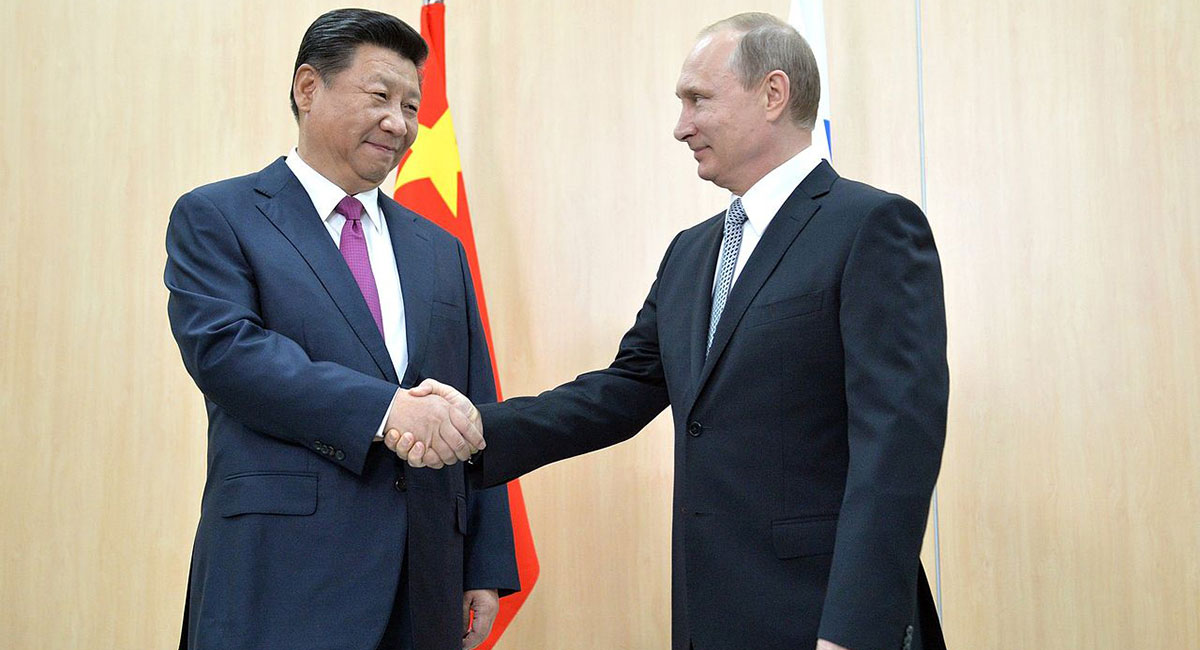Joe Biden had much experience in foreign policy before being elected president, but he is certainly no Richard Nixon. Although Nixon had to resign because of domestic corruption linked to the U.S. war in Southeast Asia, he was masterful in driving a wedge between the two communist great powers—Maoist China and the Soviet Union—to achieve more peaceful relations with both countries. Nixon cleverly created a competition between the two countries to better relations with the United States or be isolated on the wrong side of the triangle. Regrettably, Biden, despite his prior foreign policy chops, is doing the opposite by driving China and Russia closer together in opposition to the United States.
In fairness to Biden, however, Russia’s unjustified and brutal invasion of Ukraine makes it hard to mend relations with that nation in the short- and medium-term. (Although Biden’s reiteration of George W. Bush’s 2008 pledge to eventually admit Ukraine into NATO may have contributed to Vladimir Putin’s reckless, and just downright stupid, decision to commit such aggression in Ukraine.) But then why does Biden continue to unnecessarily aggravate tensions with China, which merely causes it to provide more economic and diplomatic help to Russia when the United States is trying to isolate the bear?
Granted, China is a much more potent potential longer-term threat to U.S. global dominance (not necessarily American security) than is Russia. Yet the United States seems to want to take care of the Ukraine problem first. It might be acceptable to threaten China with commercial restrictions in the massive U.S. market if it aids Russia with military exports or technology, but why encourage Chinese paranoia that a Russian loss in Ukraine will embolden the United States to increase pressure to weaken China?
Biden obliviously stoked such Chinese fears at the recent G-7 summit of wealthy Western powers—held in Japan, an historic rival of China—by the conclave’s challenging Chinese ambitious territorial claims in the South China Sea, “economic coercion” toward developing countries, and human rights policies in Tibet, Xinjiang, and Hong Kong. Although Biden sought to lighten the mood at the summit by predicting better future relations with China, the Chinese only saw Western unity, displayed on Asian soil, as creating an American-European Japanese power bloc opposed to it over Taiwan and these other disputed issues—perhaps morphing into a future Asian NATO-like alliance opposed to China’s rise.
Even without a formal East Asian multilateral alliance, U.S. containment of the ascending China has continued after the Cold War ended by continuing and enhancing American bilateral alliances in Asia and increasing U.S. and allied military forces forward deployed near China. Yet, if China similarly deployed forces in Mexico and Canada, or even Central America, the Caribbean, or South America, the U.S. security establishment would be apoplectic.
Currently, China may be a world economic power, but it is not a global military power. It has few overseas bases and few military forces that could project power effectively around the planet—the United States has plenty of both. China has been increasing its military budget, but still spends only about a third of what the United States does annually and is just a regional power militarily. When U.S. foreign policy experts complain about a rising China, they usually talk about augmented Chinese military measures in their neighborhood to defend against intrusion of U.S. carrier battle groups in the South and East China Seas and Chinese insidious “economic penetration” around the world. The latter entails commerce that, unlike interaction in the security realm, is mutually beneficial (including for the United States) rather than zero-sum and the “Belt and Road” project in which China merely wastes its resources trying to win amorphous, and often fleeting, influence in the developing world by building boondoggle government-directed infrastructure projects.
Thus, Biden, instead of hyperventilating about a “rising China,” should specify the Chinese “threat” and put it into proper perspective for the American people—which should allow President Biden to make his prediction of a thawing of relations between the two countries a reality. Perhaps a less threatened China then would be more inclined to put pressure on Russia to settle the Ukraine conflict instead of rallying to its side to circle the wagons against the United States and the West.

















